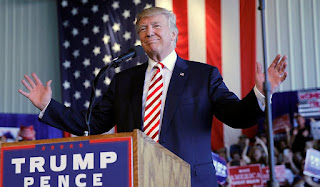 |
| President Harry S. Truman |
On March 12, 1947, addressing Congress, the 33rd President highlighted the British decision to refrain from assisting Greece and Turkey, and forewarned that ‘it must be the policy of the United States to support free peoples who are resisting attempted subjugation by armed minorities or by outside pressures.’ As Dean Acheson, then Secretary of State feared, Greece and Turkey would be the tip of the iceberg if allowed to fall, as the domino effect would result in considerable damage, if America retained a position of indifference or non-interference. The fear of Communism, given its potential for growth amid want and despair, that was gripping large swathes of Europe, drove Congress to agree to Truman’s proposal, giving birth to the Doctrine. The $400 million provided to both countries, the Marshall Plan that would assist countries in Europe, from the following year, and the Doctrine, would alter the trajectory of America.
As Greece grapples with financial concerns, Turkey remains relevant, seven decades later. Keen on joining the European Union, garnering support for her membership bid and brokering deals in bearing the responsibility for the massive influx of refugees, Turkey, ever since the apology extended by President Erdogen for the shooting down of a Russian military aircraft and the attempted coup d’état of July 2016, has returned to play a catalytic role in the world. Joe Biden’s Turkish visit in August 2016 came as America scrambled to mend fences with an ally growing unnervingly close to the Russian Federation. Eager to allay doubts, the US Vice President, undertaking his second visit for 2016, said his visit was ‘to remind the world of the paramount importance that we place on the relationship between our nations as allies, partners and as friends.’
From witnessing the fall of Germany, to ordering the bombing of Hiroshima and Nagasaki, launching the Marshall Plan, as well as the signing of the Charter of the United Nations and starting the Cold War, Truman though attempting to preserve and promote US interests, made decisions which have retained the ability to spark controversy to date, a trait associated with several of his successors. Intervening in all continents, and almost all countries, the United States of America came to embody the global policeman, politician and provoker in an ever-changing scenario.
Seventy years later, Donald J. Trump’s enthusiasm to focus within, has enabled those on the exterior to engage more widely, whilst commencing the reversal of all that America stood for, for most of the twentieth century. Faced with the growing challenge of China and Russia, and the rise of states in Asia as they gear up to realize and embrace the Asian Century, America is today precariously balancing her policy, attempting to engage positively, yet at a minimum, as has been witnessed in the first couple of months of the new administration, chiefly towards China and Russia.
From Truman to Trump, it may be argued, US Presidents have endeavoured to take America deeper into global affairs, yet the incumbent on the contrary, through his unfolding policies has begun to resonate with the Father of the Nation. George Washington, in his Farewell Address, cautioned that ‘it is our true policy to steer clear of permanent alliances with any portion of the foreign world… (yet) let those engagements be observed in their genuine sense. But, in my opinion, it is unnecessary and would be unwise to extend them.’ Withdrawing from the TPP, questioning NATO, distancing once close allies, and warming towards erstwhile enemies, the current administration appears resolute in reviving the Washington ethos, in the realm of foreign policy.
- Editorial





